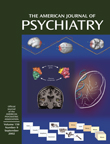Faith, Healing, and Miracles
Scratch any priest and you will find a physician.
Scratch any physician and you will find a priest.
Anonymous
A small child lay moribund in a poor 1930s neighborhood rooming house. The general practitioner who was called to the house could not make a diagnosis or offer treatment. That evening at the local hospital an otolaryngologist overheard the physician discussing the case with another general practitioner. The specialist, who never made house calls, asked for the child’s name and address. He dropped by that evening and immediately made the diagnosis of a diphtheritic membrane slowly closing off the child’s windpipe. His on-the-spot tracheotomy saved the child’s life. Was this a miracle? Dr. Flach would define it as one; the child’s grateful and desperate parents believed that it was and so incorporated it into the family’s lore. I still have the words of countless retellings and the tracheotomy scar to remind me. My experience in listening to patients and friends suggests that such otherwise inexplicable intervention experiences, miracles if you please, are quite common and that people who have had such experiences will constitute a natural audience for Dr. Flach’s essay.
The existential psychiatry “movement” growing out of the experience and writing of World War II survivors, especially psychiatrist Viktor Frankl, and their emphasis on the human “essence,” began American psychiatry’s move away from Freudian pomposities about religion. Today it is “in” for psychiatrists to consider the spiritual in the lives and treatment of their patients. Dr. Flach is a well-known psychiatric clinician and educator, past editor of the Directions in Psychiatry series, and an early proponent of spirituality’s role in medicine and psychiatry. This six-part, 20-chapter opus is a narration of his beliefs in religious miracles and the impact of these events and convictions on his own life, his practice, his patients, and, above all, the many people whose experiences he cites.
Dr. Flach begins by reviewing his many years of interest and research into these matters and explains what he means by the terms “extraordinary miracles” (events exceptional to the natural order of things) and “ordinary miracles” (events not impossible but improbable), which are the focus of this volume.
Drawing on his own personal and professional experiences as well as Biblical, medical, scientific, and literary references, biographies, and media reports, Dr. Flach surveys the phenomena of miracles and faith and seeks to substantiate his assertion of their validity and the value of faith in our lives and practices. Although Dr. Flach clearly intends to convey his own beliefs, the tone is ultimately neither evangelical nor overbearing. The titles of the six parts of the book (The Nature of Miracles, Extraordinary Miracles, Miracles in Every Day Life, Healing and Prayer, Miracles of Discovery, Faith and Resilience) give a structured indication to the approach Dr. Flach will take in the 20 chapters. In chapter 1, he recounts his own miraculous cure of pneumonia by the then newly discovered wonder drug, penicillin, and augments this personal example with numerous other instances of what he sees as miraculous cures in others. He proceeds to some of the extraordinary miracles of the Biblical chronicles, the well-publicized Marian apparitions, and the phenomenon of Lourdes. The latter is examined, interestingly, with a focus on the experiences of a skeptic: French physician and Nobel Laureate scientist Alexis Carrel, who made numerous visits and observations of the miraculous cures at the shrine. Although initially a disbeliever, toward the end of his life Carrel ultimately accepted a miraculous interpretation for some of the more dramatic events he had observed, commenting that a “miracle is…an extreme acceleration of the processes of organic repair.”
In the following chapters Dr. Flach reviews vignetted histories of patients, his own and others, and therapists who have experienced “Providence” and “miracles” in their lives and practices. He reminds the reader that “I use the word ‘miracle’ not to describe something that involves an exception to the natural order of things, but rather something that is highly improbable.” The author’s observations on prayer include testaments to its healing power and comments on scientific experiments attempting to elucidate its role in recovery from disease and injury. Within the section titled Miracles of Discovery, Dr. Flach evaluates the advances and discoveries of medicine, science, and psychiatry through the prism of a believer. Whether that prism sharpens or diffuses these matters will be decided by the individual reader. In the final three chapters, “Overcoming Helplessness,” “Physical and Psychological Resilience,” and “Spiritual Resilience: Healing the Soul,” Dr. Flach enumerates how faith and spirituality may be applied to solutions for problems commonly encountered in our clinical practices (and lives). Proper and full explications of these subjects would require book-length treatment, but these presentations are nonetheless frustratingly brief. An expansion of them would have increased the book’s utility and more fully met its implicit aim to serve as a guide for the lay and professional reader.
The practice of medicine has always stood at the juncture of science and faith. As practitioners, we have largely become creatures of statistics and probabilities in the understanding and application of our knowledge. Those who have never experienced such inexplicable events may find little of interest here. For readers seeking to confirm their belief that religious faith plays a role in therapy, Dr. Flach’s small treatise will serve them well.



